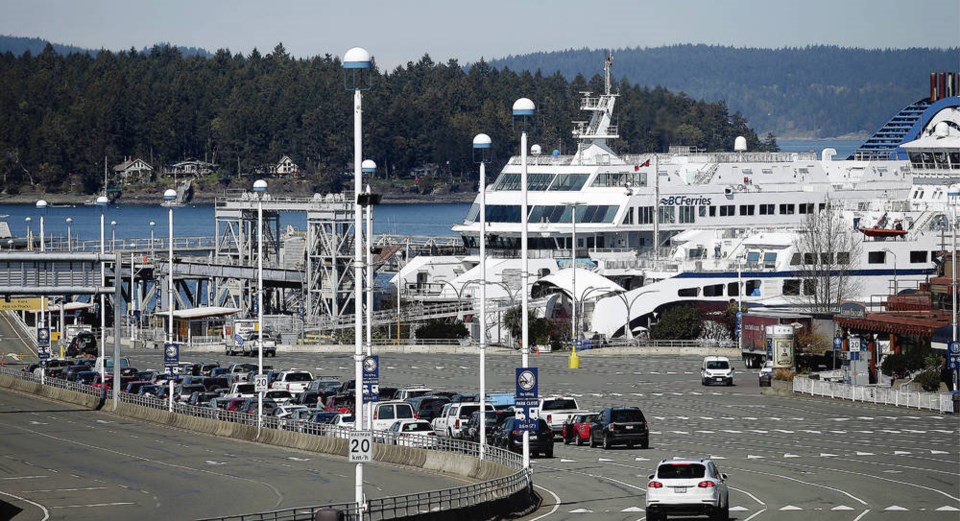An arbitrator has ruled that sa国际传媒 Ferries abrogated its collective agreement with the sa国际传媒 Ferry and Marine Workers Union. John B. Hall, an arbitrator from Vancouver, ruled that the company broke its contract by laying off more than 1,000 workers, something he found it had no right to do.
I鈥檝e spoken by phone briefly with Hall. Naturally, he couldn鈥檛 go into details since the two sides have yet to agree on a settlement. But he seems like a nice guy.
Yet I have to admit when I read this story, I wondered which planet the parties were living on. Haven鈥檛 they been reading the papers?
sa国际传媒 Ferries took this action because it was forced by COVID-fighting measures to cut sailings on major routes, and suspend service entirely on less heavily used routes.
Yet this action in no way originated with the company. It was caused by the province invoking a state of emergency and wielding the Public Health Act like Thor鈥檚 hammer.
Nor was sa国际传媒 Ferries an isolated case. Hundreds, if not thousands, of businesses across sa国际传媒 have had to shut down, lay off staff, and go into debt.
Family business owners have seen enterprises that took generations to build, laid in ruins. People have lost their life savings.
All of which is to say, given the parlous state of its finances, sa国际传媒 Ferries had no choice, any more than all those other private companies that cut back their workforces.
In effect, by declaring a state of emergency and issuing peremptory orders that could not be contested, the province relieved the company of any responsibility for what followed.
If anyone abrogated a collective agreement, it was the government of sa国际传媒
Now I appreciate that鈥檚 not a legally sustainable position. But it is, I believe, a way of bringing out what鈥檚 morally fair.
For let鈥檚 carry this several steps further. If a collective agreement, drawn up in ignorance of what lies ahead, can still be enforced, what about other understandings?
If guests back out of hotel bookings without giving notice, because they鈥檙e from out of town and their travel is restricted, can the hotel still demand payment?
If a health authority shuts down a privately owned long-term care facility because of poor COVID protocols, are the employees entitled to keep getting paid?
If a hairdressing salon is shuttered by the Provincial Health Officer and can鈥檛 meet its loan payments, is the bank entitled to force the owner into bankruptcy?
There are countless such contingencies unfolding before us. What is our policy?
It鈥檚 true these are uncharted waters. But the answers shouldn鈥檛 be left up to arbitrators, forced to deal with unprecedented quandaries, and to do so without guidance from above.
I think it鈥檚 fair to say that when the Emergency Program Act was introduced in 1993, no one foresaw, or could have foreseen, the kinds of measures now being deployed.
When individuals and corporations are placed in financial jeopardy through no fault of their own, but rather by government action, some form of remediation is owed.
Immediately after the election, whichever party wins needs to step up and clarify the situation, if need be with legislation.
If you鈥檙e going to deploy a hammer, you should also offer a shield.



